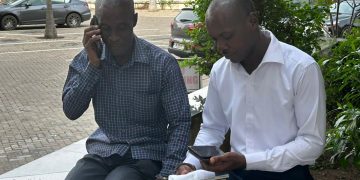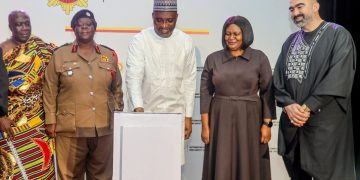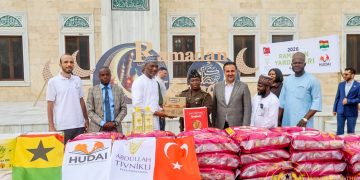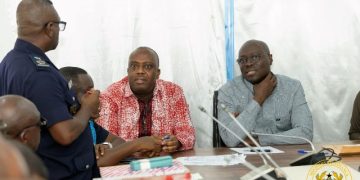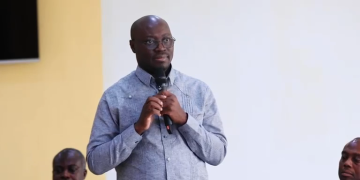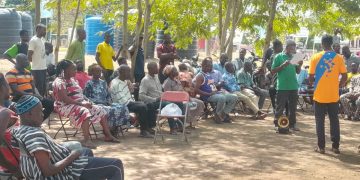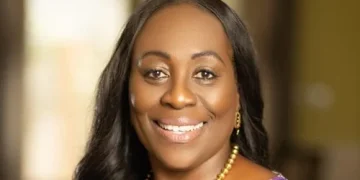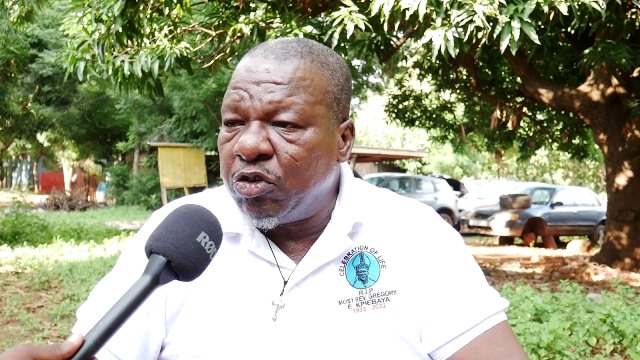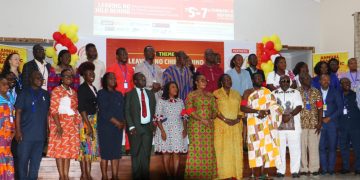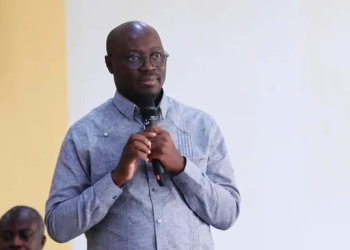After enduring more than two decades of physical pain and social isolation, women affected by obstetric fistula in northern Ghana are advocating for more than mere medical assistance. They are seeking acceptance, dignity, and, crucially, community support.
Dr. Naa Barnabas Gandau, a prominent gynaecologist and specialist in fistula treatment, asserts that while surgical intervention is critical, it constitutes only a portion of the comprehensive solution.
He argues that reintegration into society should occur alongside broader educational efforts within communities, particularly through faith-based institutions such as churches and mosques.
“When reputable health professionals and religious leaders publicly endorse fistula survivors, they help to dispel the entrenched myths that label these women as unclean or offensive,” Dr. Gandau remarked in an interview with Hoenyefia Noah Nash.
Obstetric fistula is a childbirth-related injury typically resulting from prolonged or obstructed labour when timely medical intervention is lacking. This condition leads to the formation of a fistula between the birth canal and either the bladder or rectum, resulting in continuous, uncontrollable leakage of urine or faeces.
For many survivors, the physical manifestations of this condition represent merely the initial stage of a far more profound struggle.
“I Chose Isolation to Avoid Being Mocked”
Fati Atia, a farmer from Dabozesi, experienced a life-changing moment due to her marriage. “I was pregnant and went through prolonged labor. I had to undergo surgery, but I lost the child,” she recalls. “After the surgery, I began to experience involuntary urination.”
 Instead of receiving compassion, Fati faced rejection from her husband, family, and community. “I stopped attending social gatherings because of the smell. I chose isolation to avoid being mocked. Even though I still farm, no one wants to buy my produce,” she explained.
Instead of receiving compassion, Fati faced rejection from her husband, family, and community. “I stopped attending social gatherings because of the smell. I chose isolation to avoid being mocked. Even though I still farm, no one wants to buy my produce,” she explained.
Fatima Kassim, another survivor, shared a similar experience. She was carrying twins when complications arose. “I delivered one at home before being rushed to Sandema Hospital, but I lost both babies,” she said.
Following her loss, her condition worsened. “People began calling me ‘wee-wee queen.’ My husband supports me, but I can’t bear intimacy anymore. The name-calling was too much. That’s why I live alone now.”
The Invisible Elderly and the Isolated Blind
Fistula is a serious condition that impacts not only young women but also older women. In Dabozesi, 78-year-old Salamata has endured this condition for years and is now blind. Despite the stigma she faced, she has triumphed over it, largely due to the unwavering love and support from her daughter.
“When I lost my sight, my daughter became my greatest source of joy. She refused to let me feel ashamed,” Salamata asserts. Her experience underscores a crucial reality: countless older women suffer from fistula in silence, isolated from assistance and weighed down by shame. It is necessary to recognise their struggles and provide the support they rightfully deserve.
Barriers to Treatment
 Pagnaa Tehiboo Ayisha Mohammed, the Queenmother of Dabozesi and CEO of the Matada Aiki Foundation, asserts that the lack of accessible healthcare services in the district has significantly worsened the situation. “Many women are unable to afford treatment costs. Even when they recognize their health issues, they have no facilities nearby to assist them. This ongoing suffering delays essential medical intervention,” she declared.
Pagnaa Tehiboo Ayisha Mohammed, the Queenmother of Dabozesi and CEO of the Matada Aiki Foundation, asserts that the lack of accessible healthcare services in the district has significantly worsened the situation. “Many women are unable to afford treatment costs. Even when they recognize their health issues, they have no facilities nearby to assist them. This ongoing suffering delays essential medical intervention,” she declared.
The Matada Aiki Foundation is actively supporting fistula victims to receive treatment at the Tamale Teaching Hospital in Tamale, the capital of the Northern Region. Pagnaa Tehiboo Ayisha demands greater support from both government and non-governmental organisations to ensure healthcare is accessible and affordable within the community. She insists that establishing a health centre in the area is critical to reducing the prolonged labour women endure during childbirth.
Restoring Dignity Through Community Involvement
Dr. Gandau firmly asserts that the cycle of shame and stigma will continue unless we achieve a cultural shift. He calls on community leaders, particularly those from faith-based organizations, to step up and lead this change. “It is essential for churches, mosques, and community elders to set the standard. When they openly welcome fistula survivors, it will pave the way for others to follow,” he declares.
His strategy is clear: it encompasses robust educational outreach, peer support groups, and comprehensive post-surgical reintegration programs that include counseling, vocational training, and family mediation.
For Dr. Gandau, combating stigma is a social imperative, not just a medical concern. “Surgery repairs the body, but only the support of the community can truly heal the spirit.”
A Call for Compassion
The experiences of Fati, Fatima, and Salamata are just a glimpse of a larger issue, as pointed out by Pagnaa Ayisha, CEO of the Matada Aiki Foundation and queen mother of the community. Throughout Ghana and across sub-Saharan Africa, thousands of women are suffering from obstetric fistula, often in silence due to inadequate access to health facilities.
Queen Mother Ayisha firmly asserts that through targeted advocacy, comprehensive education, and the powerful voices of survivors, we can transform the narrative and enhance healthcare for women facing fistula. Communities must unite in support of these women rather than turning against them. Only then will healing be more than just a surgical outcome; it will signify a collective victory for all.
Source: www.KumasiMail.Com/Noah Nash Hoenyefia


